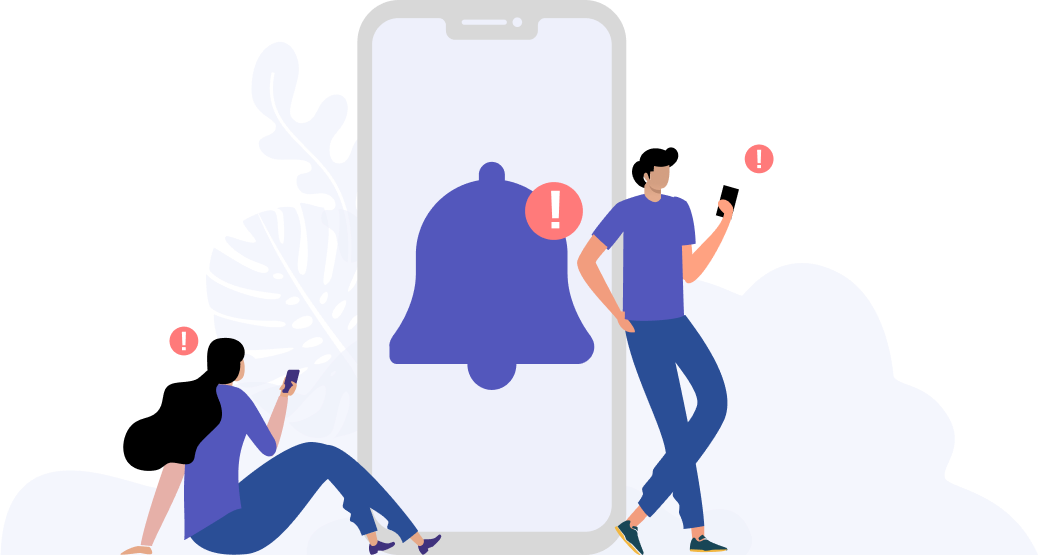Are Our Bad Tech-Habits Damaging Our Brain?

Feeling slower, drained and downright uninspired? It’s not you. It’s that tiny screen you’re probably reading this off right now.
We have so much to thank technology for: Feeling bored and lonely on a Friday night? Tinder’s got you covered. Have a pressing question you need answered at once? Google has all the answers. And the list goes on.
Technology has evolved to become such an ever-present entity in almost every aspect of our lives, so much so that we simply can’t function without it. And if we’re honest with ourselves, we spend an unhealthily large chunk of our lives behind some form of a screen and this kind of lifestyle seems almost unavoidable in this digital age.
What if you become aware of just exactly how your screens are damaging your brain – will you change the way you consume technology then? We’ve gathered most common reasons why your tech-habits are putting you through a world of hurt and how to address them:
1. Information Overload
Think about the sheer number of decisions you make on an average workday. This includes the volume of work emails, calls and social notifications that you need to respond to (amongst others). Every ping you receive demands your attention, making you flitter from one task to the next and by the end of the day, you have so many tabs open that both your computer and your brain feel overheated.
And that’s just the tip of the iceberg. With every notification, as our gadgets force us to make decision after decision, it drains us of our mental energy. The worst part? No matter how rational you think you are, it gets progressively harder to make choices as the day goes on.
This decision fatigue you experience everyday manifests itself in your physical actions in the worst ways: a sudden outburst at a family member, splurging on things unnecessarily, gorging on unhealthy food etc. The solution?
Filtering is key. This means you should be ruthlessly selective about the information you consume for the day and prime yourself to focus on the important stuff and ignore everything else. However you choose to do this, it is important that you find a method that works for you.
2. A sedentary lifestyle
Adulting is hard work. We spend most of our workdays cooped up inside stuffy office buildings, only encountering the outside world during lunch and when we leave for the day. Unfortunately for us, it comes at a hefty price – spending too much time staying inactive, sitting behind the screen can take a toll on our health; everything from digital eye strain to cardiovascular diseases.
Naturally, as our screen time takes a large bite out of our day, it leaves us less time for other activities like working out and socializing. More than that, research shows that leading a more sedentary life is linked with the thinning in brain regions associated with memory!
The work we produce is only ever as sharp as our minds. If you find it challenging to remember to take periodic breaks, develop a system for yourself – something as simple as setting alarms to scheduling timeouts may be all you need to do. Better yet, invite your colleagues to step out with you – a buddy system is a fool-proof way you can ‘enforce’ breaktimes and also creates a positive workplace culture that prioritizes everyone’s health.
Lack of quality sleep
Longer screen time is associated with decreased sleep efficiency i.e. the ratio of the total time spent asleep (total sleep time) in a night compared to the total amount of time spent in bed. One of the main reasons why many of us experience low levels of sleep efficiency is because of our phone usage in the bedroom. This has been linked to increase the amount of time it takes for us to actually fall asleep after we turn the lights off.
When we experience a restless sleep the night before, you most definitely feel the effects of it the day after – you feel irritable and may even develop a headache. Dauntingly, there are more biological consequences to your poor-quality sleep than you may realise. Research shows that poor quality sleep can cause heightened stress responses, impaired memory and even delay reaction times!
Naturally, the best way to improve your sleep quality is to make your bed a no-screen zone. Having a digital detox a few hours before bedtime will give you enough time to prime your mind for a night of restful sleep and can even help you fall asleep more easily!
Technology is only a means to an end
We toil behind our screens day in and day out for many purposes – to climb the corporate ladder, to lead a comfortable life and to give our families the best life we possibly can.

However, at the end of the day, if your mental faculties are not performing at their maximum, it will seriously infringe on your ability to achieve all these goals in life. So, take a moment to ask yourself this: Is staring at your screens all day truly worth it?
Tools Designed for Healthier Eyes
Explore our specifically designed products and services backed by eye health professionals to help keep your children safe online and their eyes healthy.





